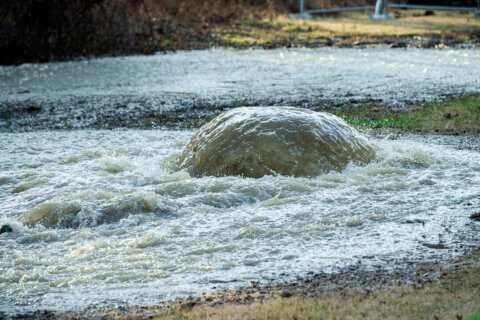D.C. Del. Eleanor Holmes Norton announced Friday that President Joe Biden has signed into law a provision that focuses on finding a backup drinking water supply for D.C.-area residents who depend mostly — or solely — on the Potomac River.
Norton included three provisions in the Water Resources Development Act of 2022, or the WRDA, all of which Biden signed into law. One provision, Norton said, will “address issues D.C. has long confronted” authorizes the U.S. Army Corps of Engineers to conduct studies on a secondary drinking water source and additional drinking water storage capabilities for D.C.
The provision “will serve to protect the drinking water and other infrastructure of the nation’s capital from serious vulnerabilities and will benefit D.C. residents for years to come,” Norton said in a news release.
Though other local water systems do have a backup water supply, the Potomac River — the fourth longest river along the U.S.’s east coast at just over 400 miles long — currently serves the sole source of drinking water for the District, as well as for Arlington County and the City of Falls Church in Virginia.
The release also notes that “natural or man-made events could render the river unusable for drinking water.”
Michael Nardolilli, executive director of the Interstate Commission on the Potomac River Basin, told WTOP the water supply is vulnerable: “We do run the risk of the Potomac River becoming unavailable due to, say, an extreme drought caused by climate change, or a contamination event that could be either accidental or intentional.”
Additionally, the Washington Aqueduct, which produces drinking water from the Potomac, maintains only one day’s worth of backup water supply — compared to other large cities like New York or Los Angeles that have a secondary drinking water source and may even be planning for a third.
Nardolilli told that “everything is on the table” when it comes to ideas for setting up D.C.’s backup water supply.
“A lot of things have been suggested: a pipeline down the Potomac from Harpers Ferry, tapping the aquifers under the city, some ‘toilet-to-tap’ program where water from the Blue Plains treatment plan could be retreated and used [as drinking water],” Nardollili said.
Local water officials have also been studying the possibility of utilizing Rockville’s Travilah Quarry for water storage, as WTOP first reported in 2016.
The other two provisions Norton wrote into the WRDA will allow the U.S. Army Corps of Engineers to conduct studies about the feasibility of swimming in the Potomac and Anacostia rivers, which the release calls “the next logical step to maximize the benefits of D.C.’s beautiful waterways,” as well as studies about D.C.’s Federal Triangle area, which has become increasingly susceptible to flooding over the years.
WTOP’s Neal Augenstein contributed to this report.








